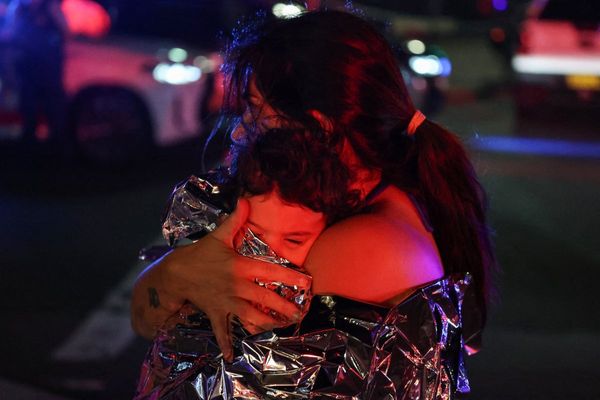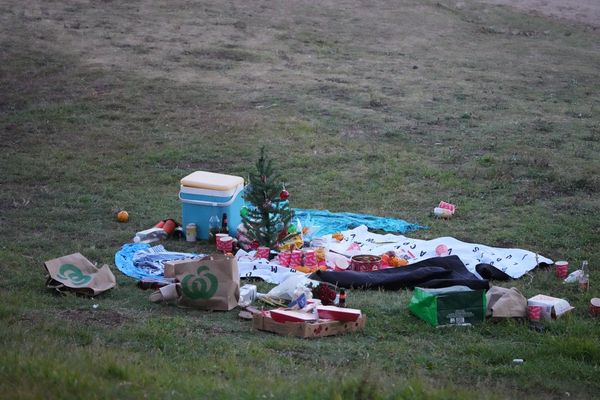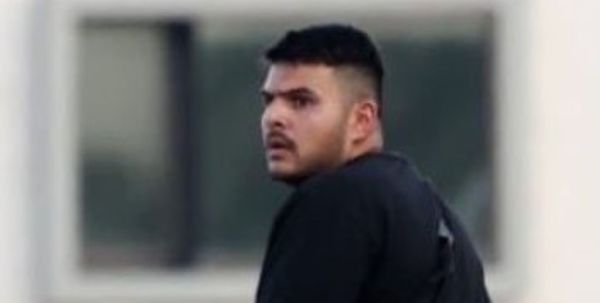
The Kremlin is undertaking a “reflexive control” campaign of threats to discourage the US from supplying Tomahawk cruise missiles to Ukraine, according to the Institute for the Study of War (ISW). On Wednesday, Andrei Kartapolov, a senior Russian lawmaker, said: “We know these missiles very well, how they fly, how to shoot them down, we worked on them in Syria, so there is nothing new. Only those who supply them and those who use them will have problems … We will find ways to hurt those who cause us trouble.” It came as the Russian deputy foreign minister Sergei Ryabkov said on Wednesday that the “powerful momentum” towards reaching a peace deal in Ukraine after the presidential meeting between Vladimir Putin and Donald Trump in Alaska had “largely gone”.
Ukrainian forces were inflicting heavy losses in a counteroffensive in eastern Donetsk region, the war’s main theatre, Volodymyr Zelenskyy said on Wednesday. The Ukrainian president’s account, based on a report by his top commander, contrasted with Putin’s address to senior Russian officers a day earlier in which he said Moscow’s forces held the strategic initiative in all frontline sectors. Zelenskyy said he spoke for almost an hour to Gen Oleksandr Syrskyi, with “particular attention on the Dobropillia operation, our counteroffensive”. Ukraine has pointed to successes in Dobropillia, just north of the logistics hub of Pokrovsk, one of Russia’s key targets.
In an assessment dated 7 October, the ISW said Russia was incurring heavy casualty rates, particularly from Ukrainian drone attacks, in return for limited tactical advances. Ukrainian forces, Zelenskyy said, were “defending ourselves along all other directions”, referring specifically to Kupiansk, a largely destroyed town in north-eastern Ukraine under heavy Russian assaults for months. He described conditions as “difficult” around Novopavlivka, further south in the Zaporizhzhia region, but said “our active defensive actions there are showing good results”. Russia’s defence ministry on Wednesday claimed it had taken control of the village of Novohryhorivka in the southern Zaporizhzhia region. In reporting the claims, the Reuters news agency said it could not independently verify battlefield accounts from either side.
The regional governor in Ukraine’s southern region of Kherson said Russian attacks on Wednesday killed three people in and around the city of the same name. The governor of Sumy region, on the northern border with Russia, said three people died in Russian drone attacks in different districts. Ukraine’s air force said it intercepted or jammed 154 out of 183 Russian strike and decoy drones overnight into Wednesday. In Russia’s Belgorod region bordering Ukraine, a missile strike killed three people in the village of Maslova Pristan, the local governor said.
A Russian attack seriously damaged one of Ukraine’s thermal power plants, authorities said on Wednesday. Two workers were injured in the attack, according to DTEK, Ukraine’s biggest electricity operator. It provided no further information, including the plant’s location, but Ukrainian authorities said Russia struck energy infrastructure in Ukraine’s northern Chernihiv, southern Kherson and south-eastern Dnipropetrovsk regions.
In the north-eastern Sumy town of Shostka, hit hard by the Russian onslaught against the power supply, authorities have put up tents where people can warm up, drink hot tea, charge their phones and receive psychological support, according to regional head Oleh Hryhorov. He posted photos of people cooking in outdoor kitchens in the street over open fires on Tuesday. Each year, Russia has tried to cripple the Ukrainian power grid ahead of bitter winters of which January and February are the coldest months. Ukraine has hit back with long-range strikes on the Russian energy and petroleum supplies, causing disruptions.
Ukraine’s ambassador to Nato on Wednesday urged European allies to step up purchases of US weapons for Kyiv. “It’s not that we prefer American weapons over French or German or some other European weapons – the issue is that we are asking the US for weapons which European countries can’t provide,” said Alyona Getmanchuk. Countries supporting Ukraine are due to meet in Brussels next week. European nations have been buying US arms for Ukraine under a scheme running since July, and so far weaponry worth $2bn has been funded. Zelenskyy has said he needs $1bn worth each month. Ukraine has massively ramped up its own production – especially in drone manufacturing – and says it is producing 40% of the weaponry it needs.
German federal police will soon be allowed to shoot down unmanned aerial vehicles, interior minister Alexander Dobrindt said on Wednesday, after a spate of drone sightings believed to be Russian efforts to spy and intimidate. Unveiling a draft law, Dobrindt said police would be authorised “to take state-of-the-art technical action against drone threats, for example with electromagnetic pulses, jamming, GPS interference, but also with physical means”.
EU chief Ursula von der Leyen on Wednesday said Europe must ramp up its defences to deter Russia’s “hybrid warfare” after air incursions, cyber-attacks and damage to undersea cables. “This is not random harassment. It is a coherent and escalating campaign,” von der Leyen said in a speech to the European parliament. “Two incidents are coincidence, but three, five, 10 – this is a deliberate and targeted grey zone campaign against Europe, and Europe must respond.”
The Swiss government has extended its protection status offered to Ukrainian refugees to at least 4 March 2027. Protection status S, which allows people to travel abroad as well as work in Switzerland, is generally limited to one year but can be extended. “The decision reflects the continued precarious security situation and persistent Russian attacks across large parts of Ukraine,” said a Swiss government statement. “Despite international peace efforts, a lasting stabilisation that would allow for safe return is not expected in the medium term.”







